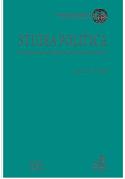The Communist Propagandistic Model. Towards A Cultural Genealogy
The Communist Propagandistic Model. Towards A Cultural Genealogy
Author(s): Adrian CioflâncăSubject(s): History
Published by: Editura Universităţii din Bucureşti
Keywords: communism; propaganda; mass communication; social control; cult of personality.
Summary/Abstract: The present study starts from a legitimate question: why the communist regimes, though they allocated massive resources to the propagandistic apparatus, did not refine their propaganda in order to increase its persuasive impact and to enhance its adaptability to necessities? The proposed answer is that the communist propaganda maintained the known coordinates because it corresponded to the ideal model imagined by the doctrinaires of Marxism- Leninism and, more important, because it fulfilled several functions which were extremely useful to the communist regimes. Propaganda was endowed, besides its communicative function that we customarily take into consideration, with two other, even more important, for which its brutal aspect was the appropriate one: that of stimulating terror by exhibiting the power’s discretionary character, as well as that of exerting, together with other key-factors of the regime, the social control. The type of mass communication practiced under communism was forged during the first three decades of the Soviet regime, depending upon presumptions on human nature, state and society which were specific during most of the 19th century and the beginning of the 20th, internalized by the ”classics” of the Marxism-Leninism. The fidelity to the ideological canon, maintained by the inertial functioning of the regime in the Soviet Union and its political and academic parochialism, explains why the propaganda model created during the Leninist and Stalinist period perpetuated in the main up to the end of the regime. The domination of the Soviet Union upon Eastern Europe led to the taking over of the Soviet mass communication model all over the communist camp. The communist propagandistic model is based on the presumption that the human being is radically malleable, the propaganda being endowed with the ideologically meliorist function of creating the ”new man”.
Journal: Studia Politica. Romanian Political Science Review
- Issue Year: 10/2010
- Issue No: 3
- Page Range: 447-482
- Page Count: 36
- Language: English

